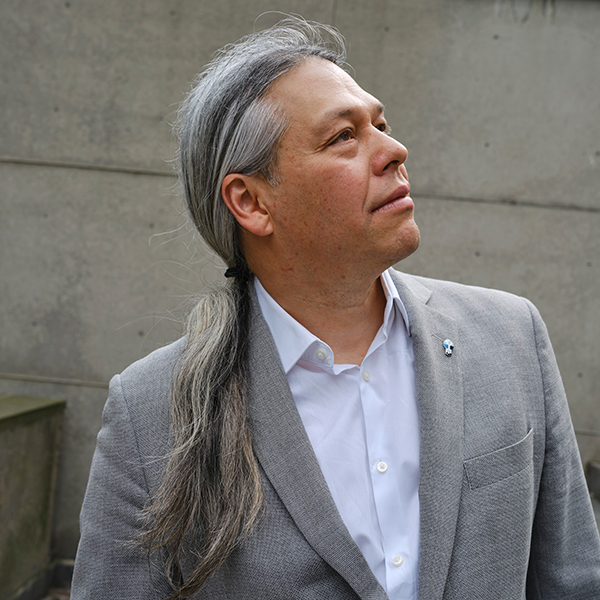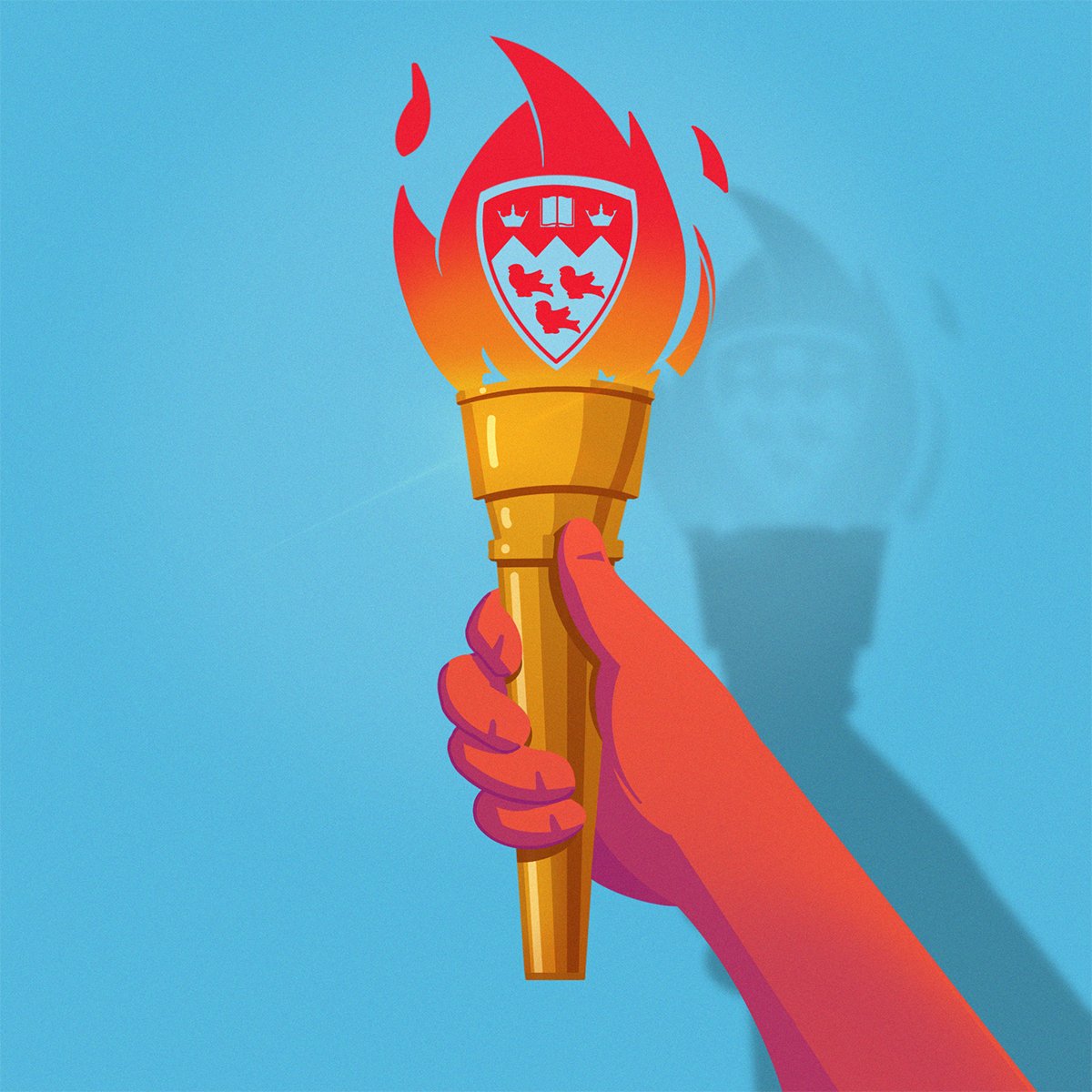Liz Plank, BA’10, likes to start her public talks on gender expectations with simple questions. “How many here are parents? And how many tell their girls they can do anything boys can do?” Lots of proud hands are usually up at this point. Then she asks, “How many tell their boys they can do anything girls can do?”
Hands eke down, uneasy silence follows.
Over the past several years, we have been discussing the problematic impact of gender expectations on women, but what about on men?
For Plank, who has emerged as one of the most prominent feminist voices of her generation (Marie Claire named her one of America’s 50 most influential women in 2016), thinking about gender and identity is nothing new.
She majored in women’s studies as a McGill undergraduate (her second major was international development studies), and did a master’s degree in social policy and gender studies at the London School of Economics. Divided States of Women, her video series for Vox Media (she is a senior producer there), won a Webby Award in 2018.
Lately, she has been thinking a lot about men.
Her new book, For the Love of Men: A New Vision for Mindful Masculinity, casts a critical gaze on traditional roles of masculinity. And, contrary to what her publisher expected, plenty of men are buying the book, no doubt drawn by a vision that expands the options available to them in expressing themselves.
Those male readers might be surprised by how much sympathy Plank has for them. In a recent article about the book, Vogue declared “For the Love of Men is no man-hating burn book—far from it.”
The idea for the book emerged over spicy ramen in New York’s East Village with Plank’s sister, who was visiting from Montreal (Plank grew up here). They were discussing a challenging relationship her sister was in, and started joking about how life would be easier if they could check off boxes for men, like building your own ramen dish. Emotionally vulnerable? Check. Unafraid of conflict? Check. Big ego? Not this bowl… Wouldn’t it be great if a woman wrote a book on how to be a man?
What started as a commiserative joke among sisters grew. Plank took four years to research the book, and as she talked with more and more men, her empathy deepened and the book became a nuanced look at how sexism hurts everyone, not just women. “We do a disservice to the [feminist] movement when we hide that men are equally hurt by the structures of oppression in our society,” she says.
For the Love of Men is full of surprising research results, saddening statistics, and food for thought. More boys endorse traditional roles now than 25 years ago. Toys have become more gendered than ever. Fewer men go to university. Race enters the discussion, too: There are fewer black male students in medical school now than there were in 1978.
Men are less likely to have close friendships than women, notes Plank. They suffer the consequences of childhood trauma more deeply. Men are less likely to see doctors, and more likely to take physically harmful risks. When Plank worked as a lifeguard she learned that men drown more often than women because they tend not to wear life jackets and exaggerate their abilities, even to themselves, all in the service of masculine expectations.
Isolated young men are vulnerable to exploitative alt-right groups. Some of the most dangerous of these groups can incite those young men to commit violent acts. “We often think about how to protect girls. We have to think [about] how to protect boys,” Plank insists.
Men are too often given short shrift in popular media, says Plank. Fathers are bumbling idiots or absent. Men are lauded for silence or stoicism and not needing anyone. “I think that’s such a dangerous message,” says Plank. Showing emotional vulnerability isn’t exactly encouraged.
The number one response Plank gets when she asks what it means to be a man, is being a financial provider. “Unemployment is so closely correlated to suicide for men” says Plank. “You lose your job and there’s nothing else that defines you?”
She advocates expanding the idea of providing to encompass providing love and attention and emotional support within a family, instilling values in the next generation. She encourages men to consider work in caring professions like nursing and teaching (fields that were once male-dominated), just as women are now encouraged to pursue careers in STEM fields.
What surprised Plank the most in her research, was how feminism concretely and measurably benefits men too. Data shows that in more gender-equal feminist societies like Iceland, men are less likely to divorce, be depressed or commit suicide, and the life expectancy gap between genders narrows.
She consciously distanced herself from what she dubs “call out” feminist discourse as she wrote the book. “[It is] much more productive and inviting and accessible … to come at [this conversation] through acceptance and listening, rather than through accusing and shaming,” she says.
“Feminism shouldn’t be a speakeasy with a dress code. It should be a block party, it should be available and accessible to everyone.”
Writing the book has transformed how Plank sees men. “I used to assume the worst in men and now I assume the best in men. And I cannot tell you how much happier that makes me.”


